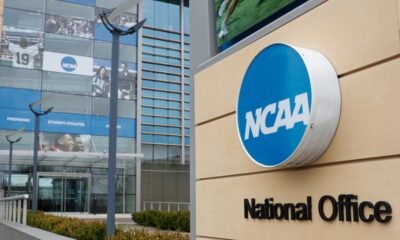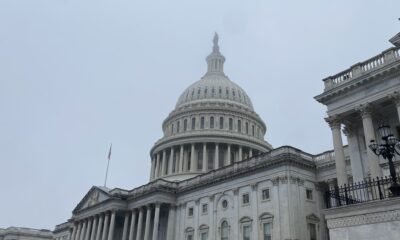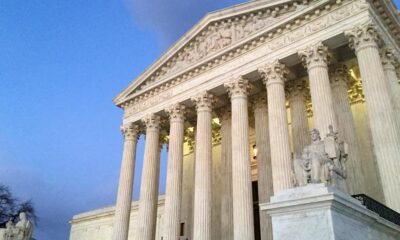Business
Kroger and Albertsons Boldly Defend Merger Plan in Federal Court Amidst US Regulators’ Challenges

PORTLAND, Ore. (AP) — The proposed merger between supermarket giants Albertsons and Kroger faces intense scrutiny as federal regulators express concerns over its implications. In a hearing that began Monday, Albertsons warned a federal judge that the merger’s blockage might lead to layoffs, store closures, and potential market exits.
The Federal Trade Commission (FTC) is seeking a preliminary injunction to halt the merger while it undergoes further investigation. The FTC argues that the lawsuit is fundamentally tied to protecting consumers’ ability to feed their families, a sentiment echoed by the agency’s chief trial counsel, Susan Musser.
Musser highlighted that Kroger and Albertsons currently compete in 22 states, providing similar prices and services which ultimately benefit shoppers. She pointed out consumer concerns, notably from Santa Fe, New Mexico, where 278 residents have voiced their opposition to a merger that would allow the combined entity to dominate the local supermarket landscape.
In defense, the companies argue that the FTC fails to consider the shifting grocery market landscape. Albertsons attorney Enu Mainigi emphasized that consumers increasingly shop across various grocery brands, with only a fraction of their spending directed toward traditional supermarkets. Through consolidation, Mainigi asserted, they would be able to compete more effectively against larger rivals.
Kroger’s attorney, Matthew Wolf, echoed this view, positing that the merger would enhance pricing options for consumers by leveraging the strengths of both brands.
The plan includes divesting 579 overlapping stores to C&S Wholesale Grocers. However, the FTC raised doubts over C&S’s readiness to manage these stores, citing internal skepticism from C&S executives about the acquisition’s viability. Conversely, Wolf countered these claims by asserting C&S’s capacity to manage the stores effectively, suggesting that the consolidation could form the eighth-largest supermarket company in the U.S.
According to the FTC, the merger could negatively impact employee wages and benefits due to reduced competition. This sentiment was articulated by Carol McMillian, a bakery manager at a Kroger store, who criticized corporate greed for prioritizing profits over employee welfare.
Kim Cordova, president of UFCW Local 7, echoed these concerns, noting the significance of accessible grocery options in many communities. Cordova emphasized that some residents rely solely on local markets for their food needs.
Mainigi pushed back, suggesting that the merger could strengthen union presence in the sector, as many competing retailers lack significant union representation.
U.S. District Judge Adrienne Nelson is set to hear from approximately 40 witnesses, including the CEOs of both companies, before deciding on the injunction. Wolf indicated that the outcome of this ruling will greatly influence the merger’s future, citing the lengthy nature of the FTC’s administrative process as a potential hurdle for the deal.
Attorney generals from several states, including Arizona and California, have aligned with the FTC in their opposition to the merger, while others have filed separate cases in state courts to block the deal.
Kroger operates 2,800 stores across 35 states, while Albertsons manages 2,273 stores in 34 states, collectively employing around 710,000 individuals.
Copyright 2024 The Associated Press. All rights reserved. This material may not be published, broadcast, rewritten or redistributed without permission.


















